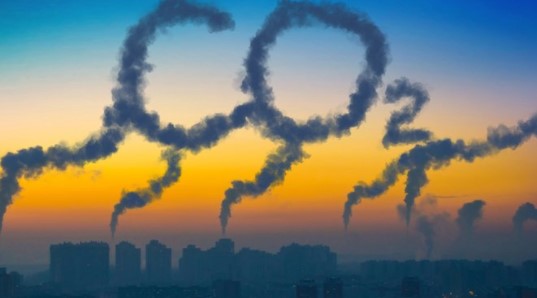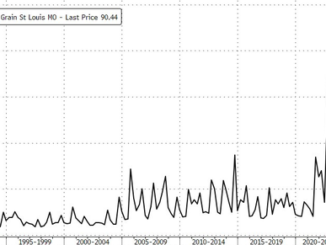
Supply chains across the Midwest face significant constraints as a portion of the Mississippi River is closed again.
Bloomberg reported a stretch of the Mississippi River, about 125 miles northeast of Memphis, near Hickman, Kentucky, closed Monday as water levels continue to plunge.
Dredging operations began in the afternoon to clear debris from the waterway. The US Coast Guard said three vessels and 51 barges were waiting in the line at Hickman.
According to the National Weather Service, waters in Memphis reached negative 10.79 feet and continue to decline, reaching record-low levels.
The ultra-low river levels are severely impacting the agriculture industry across the Midwest. We pointed out barges are reducing weight which has caused a shortage of vessels to haul farm goods from this season’s harvest to Gulf Coast terminals for export.
We also said the decline in barge traffic and reduction in weight on vessels has led to a shortage. This has triggered shipping costs for barges to hyperinflate.
Farmers who cannot find a shipper on the waterway have piled up beans and other farm goods on their property. There’s only a certain amount of time before these freshly harvested crops go bad.
Some farmers have been fortunate to find truckers, but there’s only a finite supply due to everyone searching for land transportation, including rail.
Earlier this month, the Coast Guard closed the area around Stack Island, Mississippi, due to dredging operations after barges were grounded as water levels dropped.
Jeff Graschel, a hydrologist at the Lower Mississippi River Forecast Center, said there are some signs of rainfall with cold fronts ahead, “but nothing that will get us out of the low-water situation.”
There are no signs that the low water disruption will soon abate on the nation’s most crucial waterway.
… and we must remind readers while Bloomberg and every other corporate media outlet blame so-called man-made climate change … perhaps three years of La Nina is the culprit.



